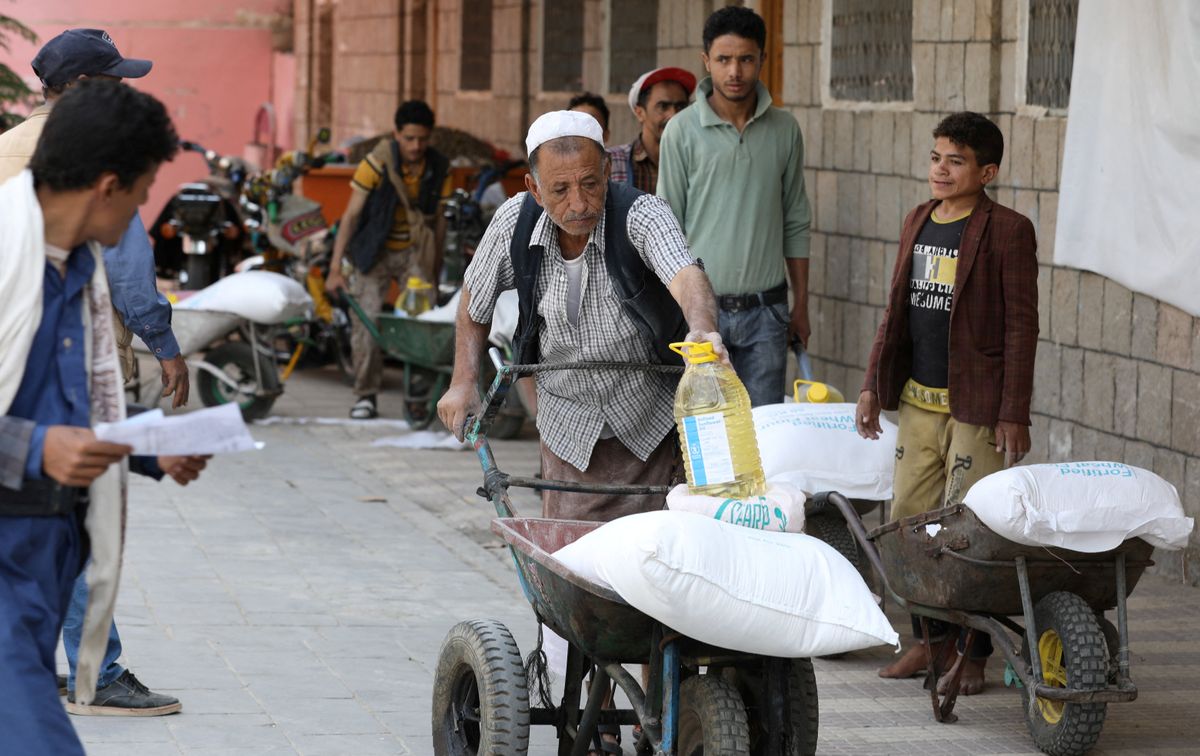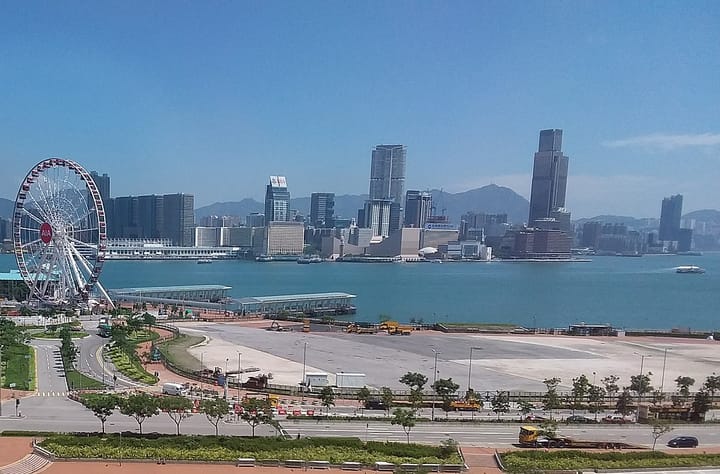The UN meets for this year’s Food Systems Summit
Food insecurity is a growing problem around the world.

A few minutes every morning is all you need.
Stay up to date on the world's Headlines and Human Stories. It's fun, it's factual, it's fluff-free.
The backstory: Food insecurity is a growing problem around the world. According to the World Food Programme (WFP), conflict, economic unrest, climate change and high fertilizer prices are all contributing to the global food crisis. Up to 783 million people don’t know where they’re going to get their next meal. This year, over 345 million people face high levels of food insecurity, which is twice as many as we saw in 2020. At the same time, almost a third of the world's food is wasted or lost. So it’s not like we don’t produce enough food for everyone; we just have issues getting it to those who need it most. For example, while 462 million people around the world are underweight, two billion are overweight or obese, according to the UN.
More recently: These past few months, the global food system has seen even more challenges. For more than a year, the war in Ukraine has affected the price of food and supply chains, but the Black Sea grain deal between Russia and Ukraine made it so that Ukraine could still reliably ship grain to countries that rely on it to feed their people. But this month, Russia exited the deal, which could trigger more international food insecurity. Since last Monday, when Russia officially quit, wheat prices have already risen more than 14%, and corn prices are up more than 10%.
The development: In Rome on Monday, a three-day UN summit on our global food system kicked off. Reps from the UN's three food agencies in Rome are there – the Food and Agriculture Organization (FAO), the International Fund for Agricultural Development (IFAD) and the WFP, plus heads of state, government reps and other delegates. The point of the summit is to work on transforming the global food system to create something that works better with the challenges the world is facing right now.
We’re looking at three key areas of action to overhaul the system. The first is investment in sustainable food systems, with the UN asking its members for at least US$500 billion annually to support long-term funding for countries in need. Secondly, the UN wants governments and businesses to work together, putting “people over profit” to frame food systems. Thirdly, the UN is calling for food systems to reduce their carbon emissions when it comes to processing, packaging and transportation as well as focusing on more sustainable methods of agriculture.
Key comments:
"In a world of plenty, it is outrageous that people continue to suffer and die from hunger," UN Secretary-General Antonio Guterres said to open the meeting. "Global food systems are broken – and billions of people are paying the price."
“The agrifood system is sick,” said Corinna Hawkes, the Director of the FAO Division of Food Systems and Food Safety, during an interview. “The way it is designed and functions means that it is weak, worn out and lacks resilience. So, the frustration and the challenge here, is that the potential power of the agrifood system to provide these solutions is lost until we transform it to make it stronger. Some of the major challenges include the way food is grown and produced is contributing to climate change, which in turn weakens the agrifood system.”
“We need to be able to grow what we eat and eat what we grow,’' Samoa Prime Minister Fiame Naomi Mata’afa told the summit. “But that simple construct is so far-reaching and presupposes that we can adequately support the actions that lead to the right outcome. It is not too late to protect what we have. All it requires is determination and tenacity. Climate action must be at the forefront of all our endeavors.”




Comments ()